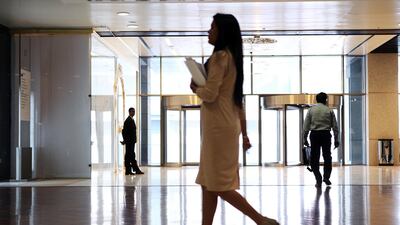The Covid-19 pandemic had a greater economic impact for women due to over-representation in industries hardest hit by the crisis, according to a report by an international non-profit organisation.
Women around the world lost at least $800 billion in income in 2020, according to estimates by Oxfam International. That’s more than the combined gross domestic product of 98 countries, the $700bn in market capitalisation that Amazon gained in 2020, and the $721.5bn the US government spent in 2020 on defense budget, according to the report.
“This conservative estimate doesn’t even include wages lost by the millions of women working in the informal economy — domestic workers, market vendors and garment workers — who have been sent home or whose hours and wages have been drastically cut,” said Gabriela Bucher, executive director of Oxfam International. “Covid-19 has dealt a striking blow to recent gains for women in the workforce.”
Globally, women lost more than 64 million jobs last year, representing a 5 per cent loss and exceeding 3.9 per cent loss for men, the report said.
They found women more likely than men to drop out of the workforce or reduce hours during the pandemic, largely due to care responsibilities. Even before the crisis, women and girls put in 12.5 billion hours of unpaid care work each day, a contribution to the global economy of at least $10.8 trillion a year, more than three times the size of the global tech industry, it said.
As the global economy recovers from the pandemic, governments around the world should work to build a more equal and inclusive economies, with increased investment in a gender, racial and climate-led recovery, Ms Bucher said.
“A fair and sustainable economic recovery is one that supports women’s employment and unpaid care work through strong social safety nets and vibrant care infrastructures. Recovery from Covid-19 is impossible without women recovering,” she said.

